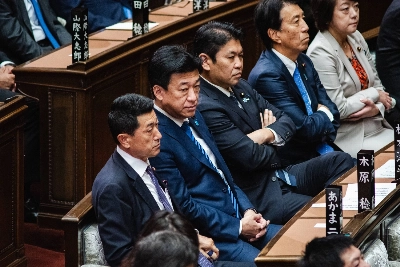Twenty years after the much heralded gender-equality law went into effect in Japan, women still face discrimination in the workplace -- in ways less apparent but just as effective in limiting their promotional opportunities and so also widening the wage gap with male colleagues.
Just prior to ratifying the United Nations' Convention to Eliminate All Discrimination against Women (CEDAW) in 1985, Japan enacted the equality law. Prompted by monitors' reports on the convention's implementation, a new bill intended to beef up this legislation is expected to pass the current session of the Diet.
The new bill will make it easier for women to return to work after pregnancy by prohibiting "unfavorable treatment" such as demotion or pressure to quit -- unless the employer can prove that the treatment is motivated by other factors. However, it doesn't represent a full commitment by the government to achieve real equality for women, which economists say could make a difference to Japan's economic growth. In particular, by falling short of CEDAW recommendations for a blanket ban on all discrimination, direct or indirect, lawyers fear it may create new "loopholes" to the detriment of working women.


















With your current subscription plan you can comment on stories. However, before writing your first comment, please create a display name in the Profile section of your subscriber account page.